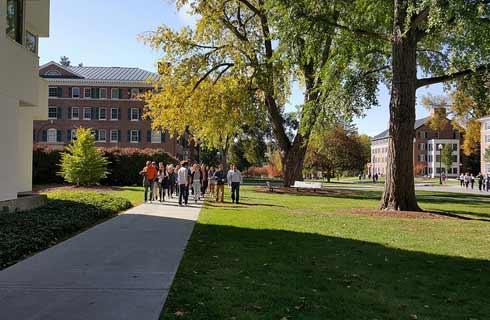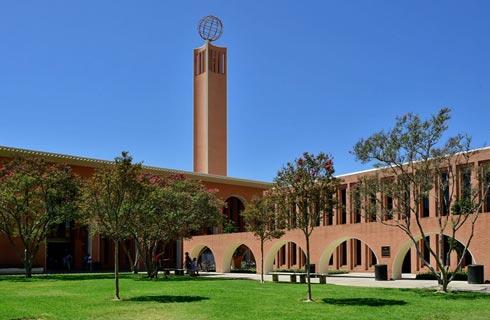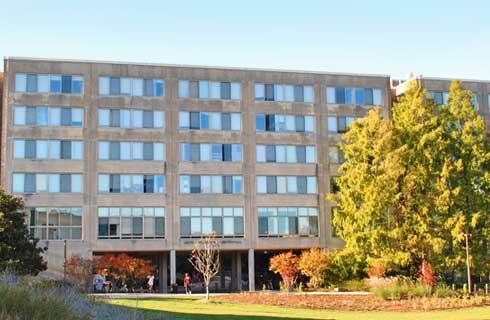电气工程学学士学位
Bachelor of Science in Electrical Engineering

学历文凭
Bachelor Degree

专业院系
James Worth Bagley College of Engineering

开学时间

课程时长

课程学费

国际学生入学条件
Applicants must have completion of Diploma from secondary school or secondary leaving examination
IDP—雅思考试联合主办方

雅思考试总分
6.5
- 雅思总分:6.5
- 托福网考总分:79
- 托福笔试总分:160
- 其他语言考试:NA
CRICOS代码:
申请截止日期: 请与IDP联系 以获取详细信息。
课程简介
The electrical engineer is a principal contributor to the modern technological age in which we live today. Following in the footsteps of inventors such as Thomas Edison and Alexander Graham Bell, the electrical engineer is developing technology that improves the quality of life. Developments in microelectronics, telecommunications, and power systems have had a profound effect on each of us. Electrical engineers have affected all segments of our society such as transportation, medicine, and the entertainment industry, to name only a few. Indeed, the electrical engineer has principally been responsible for the advent of the computer age in which we live today as well as the computer’s miniaturization and rapid expansion in computational power. The curriculum in electrical engineering has a foundation based on the principles of the electrical and physical sciences and uses mathematics as a common language to facilitate the solution of engineering problems. The core curriculum consists of a sequence of courses in digital devices, circuits and electronics, electromagnetic field theory, and modern energy conversion. In the senior year, students have the opportunity to take additional course work in one or more technical areas that include: telecommunications, electromagnetics, power systems, high voltage, feedback control systems, microelectronics, signal processing, and computer systems. Supporting course work outside electrical engineering consists of a strong background in mathematics, physical sciences, computer programming, social sciences, fine arts, humanities, and personal communication skills. Computers are used extensively throughout the curriculum, and students are expected to become proficient in higher-order programming languages and several application software tools. Although the concept of design is stressed throughout the program so as to emphasize the problem-solving skills of the engineer, the senior year includes a capstone design experience where much of the previous study is culminated. Through this two-semester design course sequence, students are required to integrate design and analytical problem-solving skills together with communication skills in a team environment.
相关申请
 预科
预科 奖学金
奖学金 实习机会
实习机会 在校学习
在校学习 跨境学习
跨境学习 校园授课-线上开始
校园授课-线上开始 在线/远程学习
在线/远程学习
开学时间&学费
学费信息仅供参考,请与IDP联系以获取详细信息
| 开学时间 | 时长 | 学费 | 地点 |
|---|
学校排名

世界排名601
数据源:
泰晤士高等教育世界大学排名
本校相关课程

Doctor of Philosophy (Ph.D) in Engineering - Applied Physics Concentration
学历文凭
Ph.D.
开学日期
课程费用总额


物理学理学硕士
学历文凭
Masters Degree
开学日期
课程费用总额


工业和系统工程哲学博士
学历文凭
Ph.D.
开学日期
课程费用总额


工业工程理学硕士
学历文凭
Masters Degree
开学日期
课程费用总额


野生动物,渔业和水产养殖理学硕士
学历文凭
Masters Degree
开学日期
课程费用总额


Doctor of Philosophy in Veterinary and Biomedical Sciences - Veterinary Medical Research [For students with a master's degree]
学历文凭
Ph.D.
开学日期
课程费用总额

其他相关课程

电气与计算机工程哲学博士
 滑铁卢大学
滑铁卢大学学历文凭
Ph.D.
开学日期
课程费用总额


电气工程学士学位
 多伦多都会大学
多伦多都会大学学历文凭
Bachelor Degree
开学日期
课程费用总额


电子工程技术员文凭
 尼亚加拉学院
尼亚加拉学院学历文凭
Bachelor Degree
开学日期
课程费用总额


电子工程技术高级文凭(合作社)
 尼亚加拉学院
尼亚加拉学院学历文凭
Bachelor Degree
开学日期
课程费用总额


电子工程技术员文凭
 德恒学院
德恒学院学历文凭
Bachelor Degree
开学日期
课程费用总额


电气工程技术员文凭
 德恒学院
德恒学院学历文凭
Foundation for Undergraduate
开学日期
课程费用总额










 美国
美国
